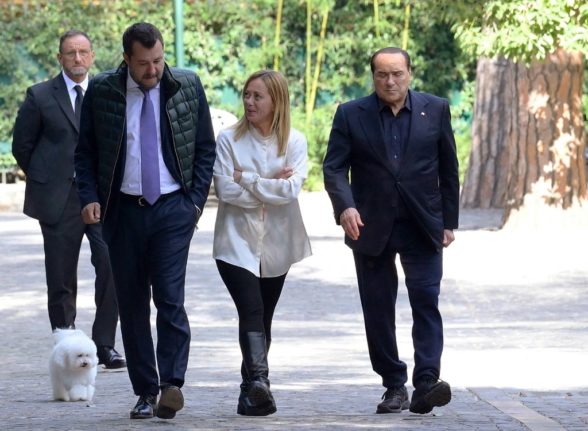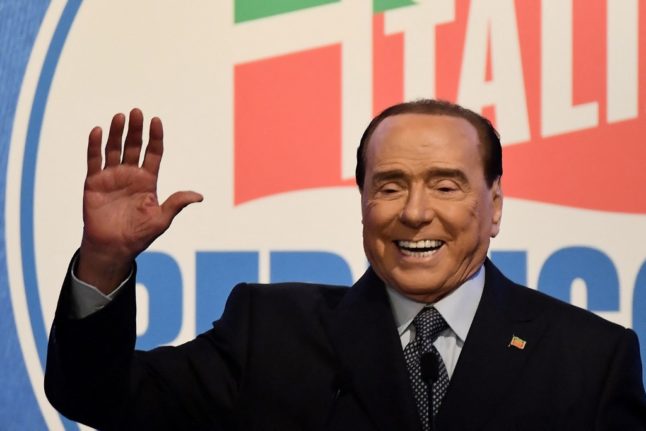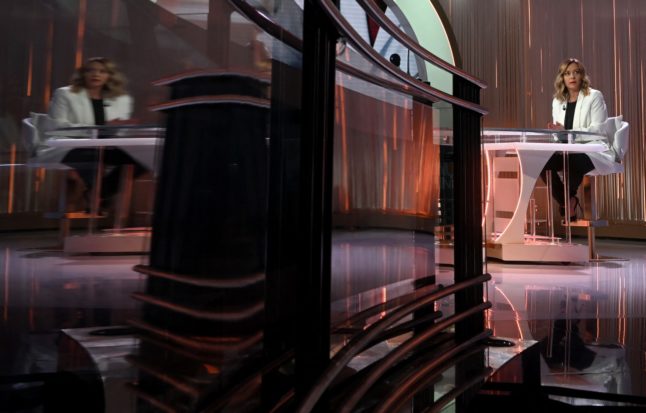“I think that, in the end, I will be present myself as a candidate for the Senate, so that all these people who asked me will finally be happy,” the 85-year-old billionaire and media mogul told Rai radio on Wednesday.
After helping bring down Prime Minister Mario Draghi last month by withdrawing its support, Berlusconi’s centre-right Forza Italia party looks set to return to power in elections on September 25th.
It is part of a right-wing coalition led by Giorgia Meloni’s post-fascist Brothers of Italy, which includes Matteo Salvini’s anti-immigration League.
Berlusconi brushed off reports he is worried about the possibility of Meloni – whose motto is “God, country and family” – becoming prime minister.
Noting the agreement between the parties that whoever wins the most votes chooses the prime minister, he said: “If it is Giorgia, I am sure she will prove capable of the difficult task.”
READ ALSO: Italy’s hard right set for election victory after left-wing alliance collapses
But he urged voters to back his party as the moderate voice in the coalition, emphasising its European, Atlanticist stance.
“Every extra vote in Forza Italia will strengthen the moderate, centrist profile of the coalition,” he said in a separate interview published Wednesday in the Il Giornale newspaper.

Berlusconi was Italy’s prime minister three times in the 1990s and 2000s, but has dominated public life for far longer as head of a vast media and sports empire.
The Senate expelled him in November 2013 following his conviction for tax fraud, and he was banned from taking part in a general election for six years.
He was elected to the European Parliament in 2019, however, and threw his hat in the ring earlier this year to become Italy’s president — although his candidacy was predictably short-lived.
Berlusconi remains a hugely controversial figure in Italy and embroiled in the many legal wrangles that have characterised his long career.
He remains on trial for allegedly paying guests to lie about his notorious “bunga-bunga” sex parties while prime minister.
Berlusconi has also suffered a string of health issues, some related to his hospitalisation for coronavirus in September 2020, after which he said he had almost died.



 Please whitelist us to continue reading.
Please whitelist us to continue reading.
Member comments